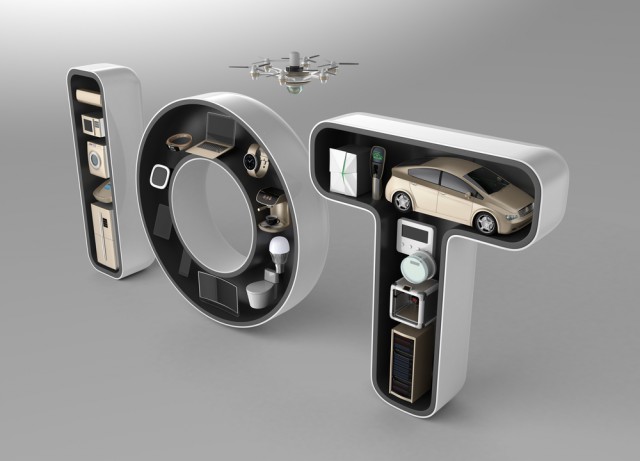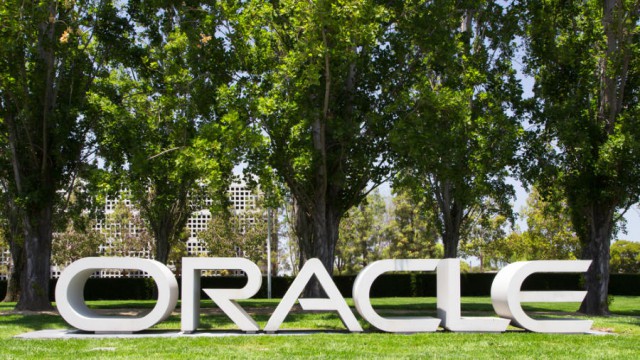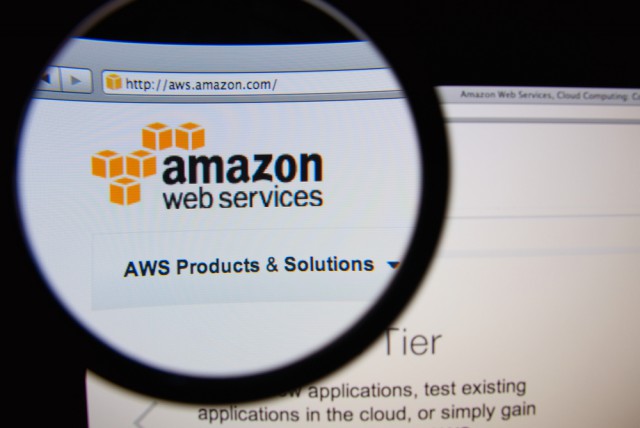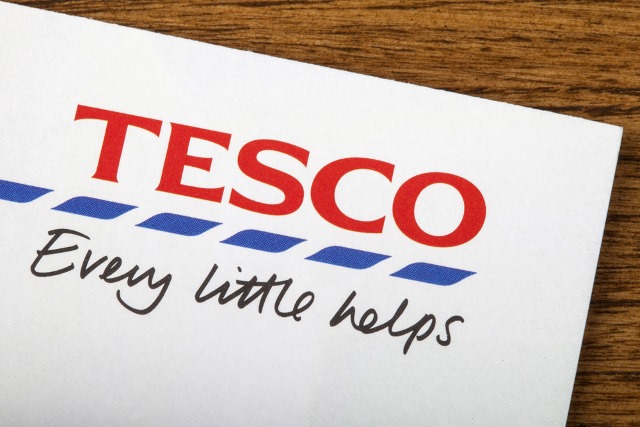
Apple paid $20 billion to developers in 2016
Apple users tend to spend a lot of money on apps. That much is obvious by looking at how much App Store developers earned last year. Apple puts the figure at a massive $20 billion, which, after taking into account the fact that it takes a 30 percent cut, would mean that the App Store generated -- at least -- $28.5 billion in revenue in 2016.
The actual revenue is likely to be higher -- though not by much -- because Apple also makes money in other ways, like through ads shown in the App Store's search results or Developer Program subscriptions. It just goes to show why so many major developers like it.

Three in four businesses collect IoT data
It looks like 2017 will be a great year for Internet of things industry. 451 Research's new report says that almost three quarters of all businesses worldwide, 71 percent of them to be exact, are gathering IoT data today.
The report is based on a survey of 1,000 organizations, scattered all over the globe. The best part about this figure is that it represents a three percent jump compared to its last report, which was released a quarter ago.

Facebook granted European license for electronic payments in Messenger
Payments through Facebook Messenger have been available in the US for some time now, and they're about to make their way to Europe.
Facebook has just been granted a license for 'payment services' and 'e-money issuance' with the Central Bank of Ireland. As a member of the European Union, holding a license in Ireland means that Facebook will be able to offer its payment services in all of the EU member states.

Oracle donates $1.4 billion for IT training in Europe
In an effort to foster increased digital literacy in Europe, Oracle has announced that it will donate $1.4 billion in both direct and "in-kind" support to ensure the continuation of computer sciences and skills in the region. These funds are part of a larger $3.3 billion worldwide initiative by the company to guarantee that in the future there will be enough skilled digital workers.
Oracle plans to use its donation to train 1,000 European people to use CS, Java and Database to a high-enough degree that they will be able to teach others to do the same. Over a three year period, the company will open 1,000 educational institutions called Oracle Academies in the region to accomplish this task.

BMW will invest €500 million in automotive startups
BMW Group has announced that its i Ventures division will be investing €500 million over the next 10 years on new car technologies in an effort to bolster its progress in developing autonomous vehicles.
The company's i Ventures division will use the money to invest in startups working on technologies such as autonomous driving and mapping that will allow BMW to improve its cars by making them both more intelligent and efficient.

AWS could become Amazon's biggest business
Holiday sales from Black Friday and Cyber Monday could very well help Amazon hit its target of $134 billion in annual sales, and Amazon Web Services (AWS) could make up for $12 billion of it
The company began offering web services to its customers over 10 years ago and in recent years this division has grown from a small to significant portion of the online retailer's business. AWS currently operates in 38 availability zones within 14 geographic locations and large companies such as Netflix, Adobe and Spotify have turned to the company for hosting and operating their websites and services.

UK bank will let customers withdraw cash using their smartphone
UK bank Barclays is testing a new feature for cash withdrawals which should eliminate skimming at ATM machines, the BBC reports. The idea is similar to contactless and mobile payment systems -- you wave your smartphone close to an ATM machine and, when prompted, type in your PIN code in either the smartphone or the ATM.
The bank says that way it will make it much harder to hijack card details. The new feature is being tested for Android-powered devices only, with iPhones being out of the picture. Apple has limited the use of iPhone NFC chips to their own Apple Pay technology, making it impossible for Barclays to use the device. However, those that don't have an Android phone will be able to use an NFC-enabled card.

Tech salaries are up in the UK
The technology skills gap is working well for those already in the industry, as the salaries for these positions in the UK just keep going up. According to a new Dice report, tech jobs have seen an increase of five percent, on average, in salaries, in the last 12 months.
The highest average pay was spotted for program managers, with these positions getting a six percent increase in salaries, up to £78,847 for permanent roles. Contractors have day rates of £600 now, 1.5 percent up compared to last year.

Bitcoin price surges after Trump's victory
The world is still reeling from the outcome of the US elections, where Donald Trump came out on top against Hillary Clinton to become the 45th President of America.
Financial markets around the world have been affected by the shocking and unexpected news and the notoriously unpredictable digital currency Bitcoin is no exception, with prices close to hitting a 35-month high against the pound amidst investor uncertainty.

SMBs find cash increasingly expensive to manage
Businesses are moving faster towards a cashless society because it's cheaper than handling "real" money. This is according to a new report by Sage, integrated accounting, payroll and payment software provider. The company’s latest report says small and medium-sized businesses are losing £9.4bn each year through cash payments.
A quarter (24 percent) say that staff members stole some cash, a third (34 percent) believe human error had them losing money, and more than half (56 percent) claim they spend at least an hour every week counting and sending money to the bank.

Women in tech earn 9 percent less than men in UK
Women in the UK's tech industry earn nine percent less money than men, according to a new report by Hired. In salary terms, that's approximately £5,000 a year in difference.
The worst part is the UK is leading the way globally, when it comes to gender pay gap in the technology sector. The US has a gender pay gap of 8 percent in the tech sector, Canada 7 percent, and Australia has the lowest gap -- five percent. Hired's report also says that it's not just about the pay.

Apple makes 2016 MacBook Pro's dongle hell less expensive
With the latest-generation MacBook Pro, Apple made a giant leap forward and fully-embraced USB Type-C. It went so far as to drop all other ports on its new prosumer-oriented laptops, even if the consumer market is not ready for it. The end result is that, if you want to use your existing peripherals and accessories, you will need (quite) a few dongles.
And this creates a problem. The new MacBook Pro does not come with any dongles in the box, so you will have to buy them yourself. This has angered quite a few prospective buyers, so, to make up for it, Apple has decided to do something it rarely does -- cut prices.

Tesco Bank suspends online banking following fraudulent activity
Tesco Bank has taken the extraordinary measure of temporarily halting online transactions after thousands of customers experienced criminal activity in their accounts over the weekend. The move also means that customers are unable to use contactless payments.
Customers were alerted over the weekend via text message after suspicious activity was noticed in numerous accounts. Some have found that hundreds of pounds have gone missing from their accounts, but it is not clear whether the problem stems from a direct hack of Tesco Bank, or if a retailer suffered a security breach.

What you need to know about blockchain
For all the recent buzz surrounding the cloud and big data, it remains a fact that at the heart of much business computing there is still some form of database. In particular the operation of digital currencies like Bitcoin relies on databases that are able to track large volumes of transactions and keep them secure.
The solution used by digital currencies -- though it’s increasingly finding other applications too -- is the blockchain. First implemented in 2009, blockchain technology consists of blocks that hold batches of timestamped transactions, each block is linked to the previous one, thus forming a chain.

IT pros earn less in UK than Australia and New Zealand
A new survey has revealed that IT professionals working in Australia and New Zealand (ANZ) earn a substantially higher salary than their counterparts in the UK and Ireland.
Computer Weekly and TechTarget's Salary Survey 2016 APAC found that the average salary of ANZ IT pros was between £50,000 and £94,000 a year. In order to learn more about IT salaries in the region, 450 IT professionals from Australia, New Zealand and Southeast Asia were questioned regarding how much they earned annually.
